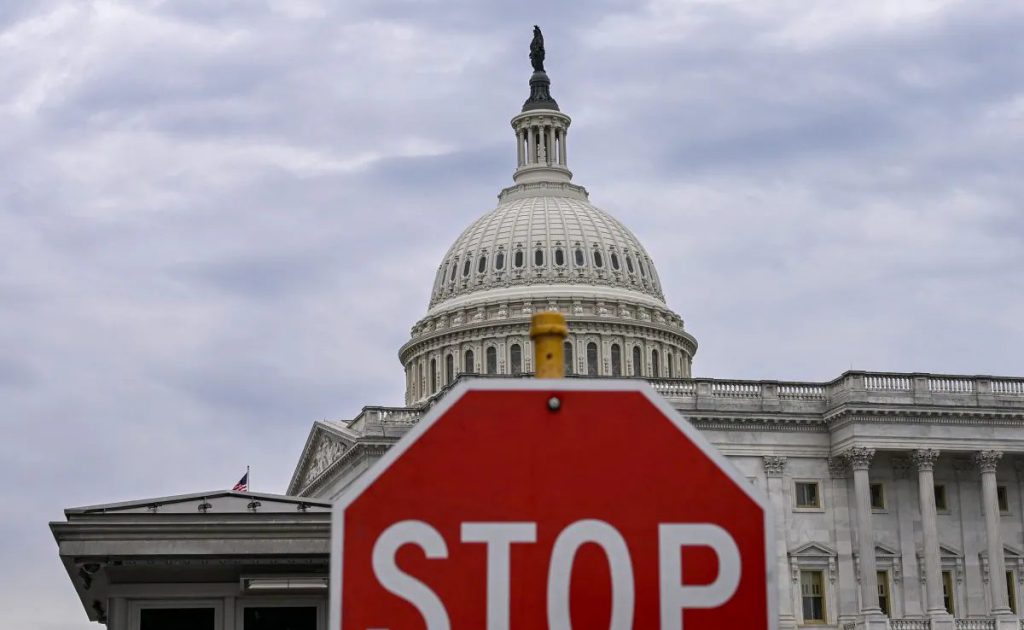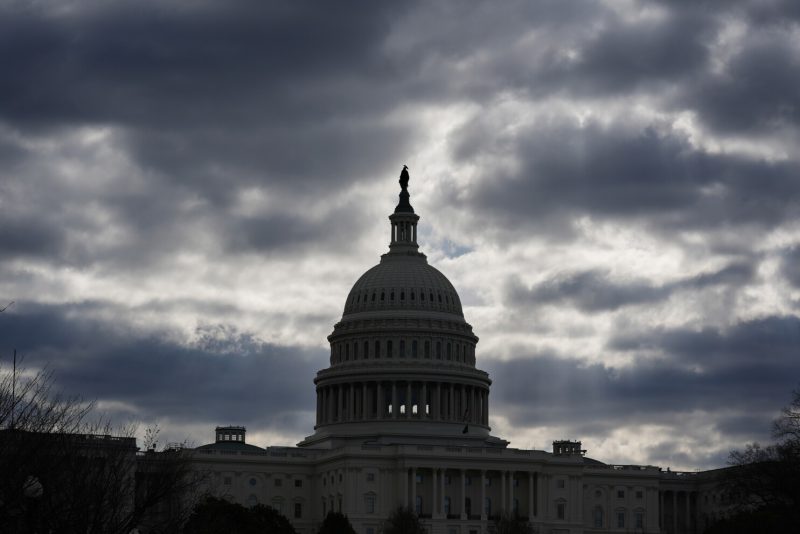The federal government shutdown started at 12:01 a.m. October 1, 2025, when the Senate could not pass a funding bill by the end of the fiscal year. This is the first federal shutdown in 6 years and it was precipitated by the failure of both Republican and Democratic funding bills receiving 60 votes in the senate. Republicans insist on extending the existing funding by seven weeks, and Democrats will not allow the legislation to pass without improved Affordable Care Act premium subsidies. And no end to this in sight at the moment, federal workers are either facing furlaughs or are disrupting essential services across different agencies.
Government Shutdown in 2025 And Its Impact On Economy And Markets


Senate Deadlock Triggers Federal Closure
This shutdown was subsequent to the breakdown of negotiations on September 30. House Speaker Mike Johnson was fast to spread blame and he took to social media to declare the government officially closed by the Democrats. He listed short-term effects including the loss of WIC nutrition by mothers and children, loss of healthcare and suicide prevention services to veterans, deficit in FEMA services through the hurricane season, and unpaid soldiers and TSA employees. Democrats did not acknowledge this framing at all.
Also Read: U.S. Chip War Risks $350B Korea Pact as China Strikes Back
The former Vice President Kamala Harris replied with a strong statement:
“Let me be clear: Republicans are in charge of the White House, House, and Senate. This is their shutdown.”
Sen. Patty Murray, who serves as the vice chair of the Senate Appropriations Committee, said in a video from Capitol Hill:
“Make no mistake, our government has shut down because Republicans refuse to negotiate with Democrats and do their job.”
Rep. Jasmine Crockett of Texas stated that Republicans “had every tool to govern and chose chaos instead,” while Rep. Jamie Raskin called it “MAGA’s government shutdown” that was “totally avoidable.”
Government Shutdown History: Pattern of Federal Shutdowns
The 2018-2019 closure that lasted 35 days and disputes over funding the wall of the border during the first presidency of Trump fueled what has been the longest border closure in U.S. history. According to Congressional Budget Office, that shutdown furloughed 380,000 workers and cost nearly 5 billion.
Several sectors felt the economy’s impact, which involved federal lending and small business operations as well. In 2013, the closure took 16 days to shut down, and employers made 800,000 federal workers go on furlough. At the time of this shutdown Standard & Poor’s estimated that it cost the economy at least $24 billion and reduced annualized 2013 fourth-quarter GDP growth by at least 0.6 percent.
The Republican requests to postpone the funding of the Affordable Care Act provoked the shutdown since the Democrats and President Obama were unable to accept it. Since 1980, federal shutdowns have been occurring as an opinion by Attorney General Benjamin Civiletti stated that agencies had to close up because of a funding gap. Prior to that period, most federal agencies just went on with their operations downsizing unnecessary activities. Earlier episodes canceled immigration hearings, postponed federal lending to small businesses and home buyers, and shut down national parks nationwide.
US Government Shutdown News: Current Impact & Economic Consequences
Essential operations are still going on at the moment. Active duty military, federal law enforcement agents and air traffic controllers are on duty but payment schedules will be unknown as yet. The postal service works as normal since the mail delivery is self-funded and does not depend on congressional funding.
Nonetheless, the huge upheavals are already being experienced in different departments. During these closures, the Department of Defense normally furloughs at least one half of its civilian employees, and even full-time civilian military technicians in the National Guard. The national parks and the federally controlled museums such as the Smithsonian are likely to close and this cuts the income of tourism.
Also Read: TrumpRx Platform Reshapes Pharmaceutical Pricing as Pfizer Signs On
In past shutdowns nearly half a million workers faced lock out and employers forced 1.3 million others to work without knowing when they could receive their salary. During furloughs, federal agencies do not allow employees to access work email or do any work, and some agencies gather government equipment to monitor their adherence. Economic impacts reflect themselves in macroeconomic statistics – the job market loses confidence, GDP growth reduces, and the government loses more money than it would have paid to remain open.
No obvious path to resolution exists. Republicans desire a mere continuing resolution whereas Democrats are demanding ACA subsidy extensions. No one in the Capitol knows what is going to happen, and how much time it will take and what will be the end result is not known yet because negotiations are still going on.





